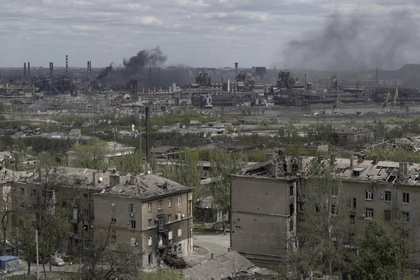Ukraine has established three key priorities for economic growth during Russia’s continuing full-scale invasion, according to a new policy paper issued by the government. These include economic stability, removing constraints on growth, and reforms.
The White Paper on Immediate Economic Policy Priorities for Growth, issued by the Ministry of Finance and Ministry of Economy on June 5, outlines the vision and measures for economic development in detail.
JOIN US ON TELEGRAM
Follow our coverage of the war on the @Kyivpost_official.
During on-going wartime conditions, Ukraine expects to mobilize additional domestic revenue but will need help from partners to expedite economic recovery. Plans include seeking financing from external partners through to 2027 and gaining access to $320 billion of frozen Russian assets. The 2027 timescale is linked to the Budget Declaration for 2025-27.
Ukraine foresees being able to eliminate macroeconomic risks if collaboration with Multi Donor Coordination Platform (MDCP) partners can establish a multi-year plan (to 2027) for external financing, combined with non-cash support for macroeconomic stability.
Furthermore, Ukraine has identified a need to boost growth through reforms related to production capacity, capital stock, skills, and technologies. The approval of the Ukraine Facility for 2024-27, along with the start of Ukraine’s EU accession process, have become anchors for reform planning already, the paper says.

Russiaʼs War Caused $170B in Infrastructure Damage to Ukraine
The paper states that all three priorities must be addressed simultaneously given the invasion is continuing into its third year. It was created by a team including ministries, the Reform Delivery Office of the Cabinet of Ministers of Ukraine, the Kyiv School of Economics, and the Center of Economic Strategy. Ricardo Hausmann and Harvard’s Growth Lab were involved in consultancy during the process.
Key reported challenges for Ukraine include securing air defenses, addressing energy needs, enabling stable and predictable access to external markets, managing labor shortages, and restoring critical Logistics (SEAL+).
For monitoring purposes, the government has created a Ukraine Reforms Matrix website, where the state will report on achievement against pillars agreed with the EU and the International Monetary Fund. To that end, Ukraine needs to implement more than 200 reform measures in 2024 alone.
Measures for sustainable macroeconomic foundations include:
- Tax and customs reforms to broaden the domestic revenue base
- Strengthening public finance management
- Removing quasi-fiscal distortions
- Maintaining an adequate monetary policy stance
The task list for faster economic recovery is to be formed by:
- Sectoral reforms in the energy, critical materials, agriculture, and transport sectors
- Trade facilitation reforms to improve trade competitiveness and the effectiveness of border agencies
- Labor market programs focused on increasing the labor market participation rate
- Policies to preserve human capital.
The government envisages higher growth potential if the following are achieved:
- Strengthening law enforcement, judiciary, and anticorruption efforts
- Enhancing public investment management
- Improving the business climate for domestic and foreign investment
- Improving corporate governance within state-owned enterprises
- Strengthening regional policy coordination.
The Ukraine Plan – a document that underpins the EU-approved Ukraine Facility Plan for economic recovery – outlines key sectors for reform and investment projects. These include energy, transport, agri-food, critical materials and digital transformation.
“It will take many years for GDP levels to return to pre-war levels, and even longer to significantly narrow the income per capita gap with EU countries,” the authors of the paper state.
They add: “Ukraine cannot achieve this alone: support from our partners will be essential along this path. Without a prosperous Ukraine, European prosperity will not be fully realized.”
You can also highlight the text and press Ctrl + Enter











